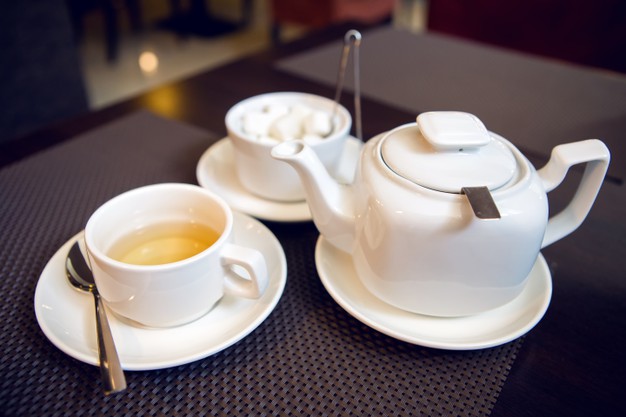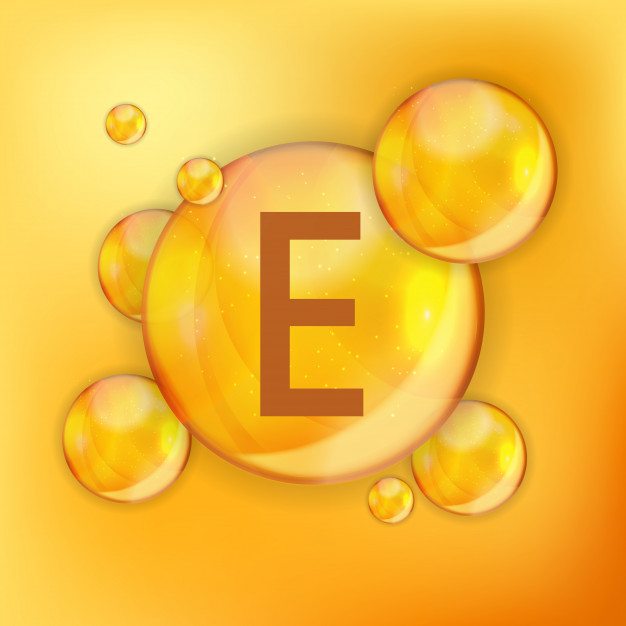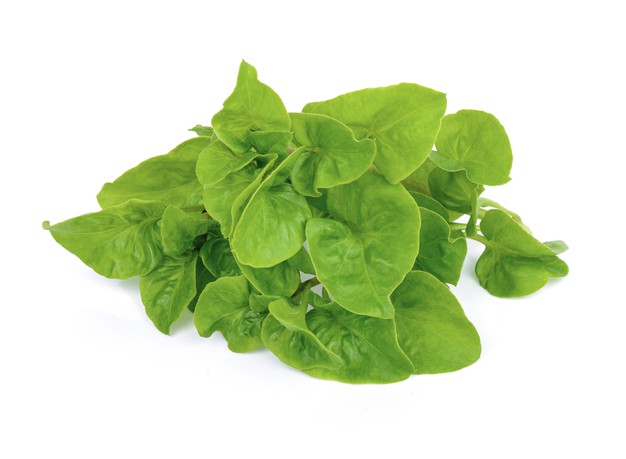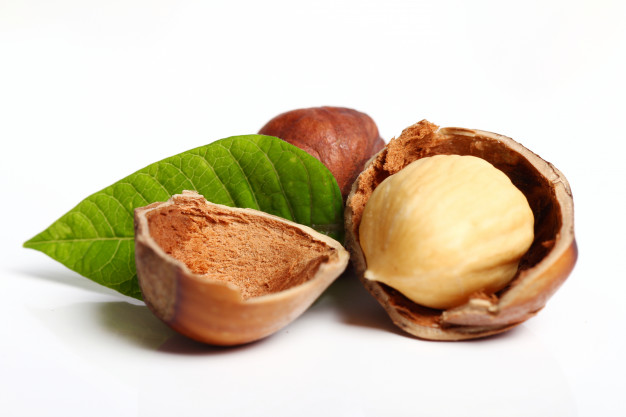White tea is obtained from minimally processed leaves of the Camellia sinensis plant thus it is considered as the most delicate variety of tea and it offers numerous health benefits.
Biological active compounds of white tea and their roles
It contains various imperative biologically active components, which include –
- Epigallocatechin Gallate - helps to exert antioxidant, anti-inflammatory and anti-carcinogenic property
- Catechin – helps to exert potent antioxidant activity and neuroprotective activity
- Tannin- though this component is found in lesser amount but it plays significant role in reducing several health complications
- Theaflavin – it is responsible for the bitterness as well as for the characteristics flavor of the tea and also exerts various nutraceutical effects

Properties of white tea
Antioxidant activity
- It is loaded with antioxidants that play imperative role in neutralizing free radicals thus protects the body from its harmful effects
- It helps to decrease oxidative stress as well
- It helps to protect every cells from oxidative damages thus promotes their functionality
Anti-inflammatory activity
- Catechins, polyphenols and EGCG components of white tea exhibit strong anti-inflammatory activity, which helps to prevent inflammation by decreasing the concentration of inflammatory mediators in body
- It also helps to reduce pain and swelling

Anti-carcinogenic activity
- Its antioxidant and polyphenols components are responsible for exerting anti-carcinogenic activity, which helps to decrease the prevalence of carcinoma
- It also plays imperative role in preventing genetic mutation, which is considered as one of the most important causes of cancer
- It has seen that consumption of white tea is extremely useful for destroying mutated cell and also suppresses the growth of malignant cell by regulating cellular proliferation thus its consumption is thought to be very much beneficial for reducing the risk of developing cancers
Hypolipidemic activity
- As it has hypolipidemic activity thus its consumption is very effective for decreasing the risk of developing hypercholesterolemia
- Consumption of white tea is very effective for reducing the concentration of LDL in body
- On a contrary it has seen that its consumption is related with increasing the level of good cholesterol or HDL in body
Detoxifying activity
- It acts as an effective detox
- It helps to promote detoxification process thus its consumption is very much helpful for cleansing the body
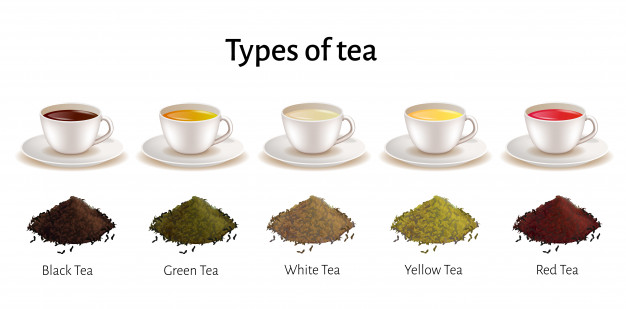
 Health benefits
Health benefits
Role on immunity
- It helps to improve immunological responses of the body
- Catechin component of white tea plays impetrative role in boosting up the overall immunity
- Its consumption is very effective for increasing the resistance power of the body, which ultimately helps to make the body able for fight against infections
Role on oral health
- Flavonoids, tannins and fluoride components of white tea are considered as the most important components that play vital role in promoting oral health
- Fluoride of white tea plays imperative role in preventing dental carries
- Tannins and flavonoids components present in white tea are responsible for preventing the growth of plaque bacteria, which helps to inhibit dental plaque formation
- It helps to prevent cavities as well
- Its antimicrobial activity is also accountable for improving oral hygiene by preventing microbial infestation within oral cavities
Role on hepatic health
- Consumption of white tea is thought to be very effective for protecting the liver from hepatitis as catechin component of white tea exhibits potent antiviral effect against hepatitis B virus
- Its antioxidant activity is responsible for protecting hepatic cells from free radical induced oxidative damages thus helps to promote their functionality, which finally helps to improve overall hepatic health
- Its hypolipidemic activity is also accountable for inhibiting fatty infiltration thus significantly reduces the prevalence of hepatic cell necrosis, gall stone formation and fatty liver disease

Role on renal health
- It has seen that consumption of white tea is extremely useful for protecting the kidney from damages
- Its catechin component plays imperative role in reducing the prevalence of renal failure
- Catechin is also responsible for decreasing the risk of developing renal calculi
Role on reproductive health
- It helps to improve the health and functionality of reproductive organs thus its consumption is thought to be very beneficial for reducing the complications of infertility
- It has seen that consumption of white tea significantly improves the health of male reproductive system
Role on skin
- Its antioxidant activity is related with revitalizing the skin and prevents aging
- It helps to prevent wrinkle, acne, pigmentation, rosacea, psoriasis and blemishes as well
- It is associated with preventing loosening of skin too
- It is also very effective for preventing discoloration of skin
- Its anti-inflammatory activity is accountable for reducing eczema

Role on nervous system

- It helps to promote the health and functionality of central as well as peripheral nervous system
- It has seen that consumption of white tea is associated with improving the production of alpha wave in brain that helps to improve brain’s activity
- Its catechins component and antioxidant activity is related with delaying memory decline thus its consumption is very effective for enhancing memory
- Its EGCG component plays significant role in preventing misfolding of proteins in brain that help to reduce the risk of developing Alzheimer’s disease and Parkinson’s disease
Role on hair
- Consumption of white tea is very effective for improving the health of hair
- Epigallocatechin gallate component of white tea is considered as the most important component that helps to enhance hair growth and also prevents hair loss
- It helps to reduce dandruff as well
- It also helps to improve the shining of hair
Role on digestive health
- Consumption of white tea is very effective for preventing acid reflux or heart burn
- It also helps to promote digestion thus individual who suffer from indigestion should include white tea in their diet
- It helps to reduce stomach cramp as well
Role on mental health

- Its consumption especially in morning is very effective for improving overall mental health status
- Theanine component of white tea plays significant role in calming frayed nerve and provides a feeling of relaxation thus its consumption is believed to be directly related with reducing anxiety and stress level of the body
- It is related with stimulating the synthesis of GABA (neurotransmitter), which is also accountable for providing calming effect to the body
- It helps to enhance mood
- It is also associated with enhancing alertness and focus in brain by preventing exciting stimuli, which are responsible for over activity
- It also helps to make an individual feel more energized
Disease preventive role
It has been extensively used for preventing various diseases like –
- It is very effective for preventing obesity as it enhances the catabolic rate of the body, which ultimately helps to increases the burning of existing fat cells
- Catechin component of white tea has anti-diabetic effect, which helps to decrease the concentration of free sugar in blood by enhancing insulin sensitivity
- Its consumption is also very effective for decreasing the prevalence of cardiovascular diseases
- It helps to prevent hypothyroidism as well
General consideration of using white tea
- As white tea is comparatively less dense than other teas thus it is better to add two teaspoon of white tea leaves to boiled water for preparing a cup of tea
- It is better to store it in room temperature and in an airtight container


Source:
Dias, T.R., 2013. White Tea (Camellia sinensis (L.)): an-tioxidant properties and beneficial health effects. International Journal of Food Science and Nutritional Diet, 2(2), pp.19-26.
Dias, T.R., Carrageta, D.F., Alves, M.G., Oliveira, P.F. and Silva, B.M., 2019. White tea. In Nonvitamin and Nonmineral Nutritional Supplements (pp. 437-445). Academic Press.
Martins, A.D., Alves, M.G., Bernardino, R.L., Dias, T.R., Silva, B.M. and Oliveira, P.F., 2014. Effect of white tea (Camellia sinensis (L.)) extract in the glycolytic profile of Sertoli cell. European journal of nutrition, 53(6), pp.1383-1391.
Pastoriza, S., Mesías, M., Cabrera, C. and Rufián-Henares, J.A., 2017. Healthy properties of green and white teas: an update. Food & function, 8(8), pp.2650-2662.
Sanlier, N., Atik, I. and Atik, A., 2018. A minireview of effects of white tea consumption on diseases. Trends in Food Science & Technology, 82, pp.82-88.
Tenore, G.C., Stiuso, P., Campiglia, P. and Novellino, E., 2013. In vitro hypoglycaemic and hypolipidemic potential of white tea polyphenols. Food chemistry, 141(3), pp.2379-2384.
